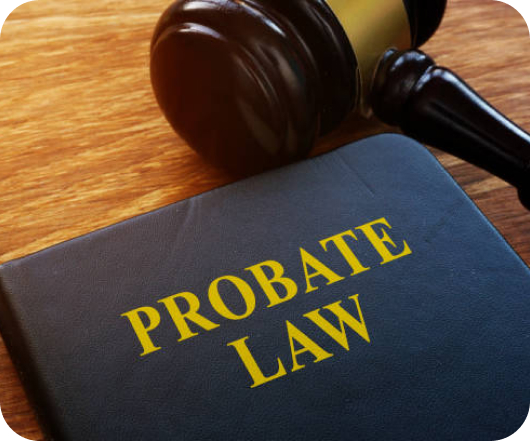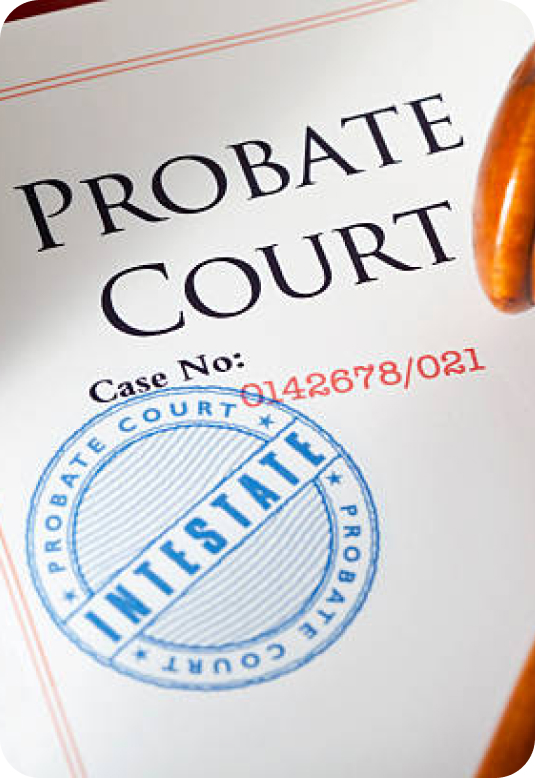A probate lawyer is a valuable resource to ensure you can avoid common issues after a loved one passes away.
Probate Legal Services to Protect Your Assets and Loved Ones
Even though you are not required by law to hire a probate lawyer, there are many reasons why you should have legal representation if you need to probate a loved one’s estate. It’s an understatement to say that the probate process can get complicated. An experienced attorney will help you navigate the legal challenges of managing a loved one’s estate.
At Monceaux Law Firm, we offer full-service solutions for families navigating probate. Whether you are facing the responsibility of overseeing the administration of the estate or want to create an estate plan to minimize problems in future probate, our legal team is just a phone call away.
The good news is that the Texas probate process is relatively simple compared to other states. The required legal steps still need to be followed to ensure the estate is distributed legally and effectively.

Practice Areas:
How the probate process works
Probate is a legal process designed to manage an individual’s assets, will, and belongings after the person has passed. Even if the individual has a will and estate, the Texas Estates Code requires that the will is admitted to probate. The probate process validates the will, so it is effective for asset distribution. Probate is a legal process that is designed to validate your loved one’s will, appoint an Executor or Administrator to administer the estate, and protect your assets, and the interests of all parties involved.

This probate process begins when the executor of the will files an application for probate with the court. There is a statute of limitations of 4 years to initiate this proceeding. After notice procedures are completed, a prove-up hearing is held. At the prove-up hearing, the judge will determine if the will is valid and if the Executor is qualified to serve. Assuming both are true, the will is admitted to probate, and the Executor is appointed and authorized to administer the estate.
First, the judge determines that the provided document meets the requirements as a valid will. If so, the will is admitted to probate and becomes part of the public record so that all parties know that the person died with a valid will.
When you are carrying the heavy responsibility of settling a loved one’s estate, there is no doubt that an attorney can be a valuable resource. Most legal experts recommend that the first step is to hire a lawyer at the beginning of the probate process. It’s essential that you have an experienced representative to help you navigate the paperwork, legal forms, and probate court proceedings.
When assets are exempt from probate
Even though probate is often necessary, there are situations when property or assets might be exempt from the probate process. For example, an estate might be able to bypass probate entirely, or the assets can be transferred to the beneficiary without passing through probate.
Here are a few examples of when probate might not be necessary or when assets may be exempt from probate:
- Assets Under $75k:
- There is no will, and the total value of the estate is $75,000 or less. In this situation, an affidavit can be filed with the court for the family to collect the property after 30 days have passed since the individual’s death.
- Joint Tenancy:
- Probate is unnecessary when a deed creates a right of survivorship in multiple owners. there are multiple names on the asset deed. For example, if a real estate property is held in joint tenancy with two or more owners.
- Revocable Transfer on Death Deed:
- If the asset is designated as community property with the right of survivorship, then probate might not be necessary.
- Community Property:
- If the asset is designated as community property with the right of survivorship, then probate might not be necessary.
- Payable on Death Accounts:
- Certain types of assets and financial accounts, such as bank accounts and life insurance policies, are designed to be payable on death. The individual owner must choose to designate a beneficiary before they pass. Those types of assets include:
– Life Insurance
– Employee Benefits
– Financial Accounts
– Retirement Accounts
– Motor Vehicles
- Certain types of assets and financial accounts, such as bank accounts and life insurance policies, are designed to be payable on death. The individual owner must choose to designate a beneficiary before they pass. Those types of assets include:
- Survivor Annuity:
- Another example when probate can be avoided is if the payments are from a survivor annuity.
- Assets Held in Trust:
- Even though assets named in a will must go through the probate process, any asset(s) held in a trust may be exempt from probate.
Of course, it’s always best to consult with a probate attorney. This process can be challenging and confusing, so it’s best to have legal support to ensure you always follow the regulations and laws.

What Does a Probate Attorney Do?
A probate attorney oversees estate administration by offering legal advice to navigate the various challenges that can come up. The specific services will vary depending on whether the deceased had a will (testate) or died without a will (intestate).
When you hire a probate attorney, there are many ways they can help with this process:
- Prove the validity of the will to determine the appropriate probate procedure based on whether your loved one did or did not have a will
- File for probate
- Assist with the administration of the estate
- Assist with the identification of estate assets
- Advise on the validity of creditor’s claims
- Assist with the distribution of assets to beneficiaries
- Collin County Bar Association – Probate, Trusts & Estates Section
- Tarrant County Bar Association
- Dallas Estate Planning Council
- Estate Planning Council of North Texas
- National Academy of Elder Law Attorneys
- Dallas Trial Lawyers Association
- College of the State Bar of Texas
- State Bar of Texas – Probate & Trust Section
- The Pro Bono College of the State Bar of Texas
- Independent Trustee Alliance
Do You Need a Probate Attorney?
Navigating the probate process can be confusing and challenging, especially if you aren’t familiar with how these legal proceedings work. When a loved one passes away, you need a probate attorney who can help with your rights and obligations relating to the person’s estate.
While there are situations where a case can be navigated without a probate lawyer, many people prefer the assistance of legal representation to protect the interests of everyone involved. It can be uncomfortable to handle the probate process without legal support, especially if there are disputes among the family about how the estate should be settled.
Consider hiring a probate attorney if any of these circumstances apply:
- The will is unclear or the language of the will is vague
- There is uncertainty about the validity of the will
- You are unsure whether probate is necessary
- The person passed away without a will
- There are disputes over asset distribution
- You don’t understand succession laws
- Complicated assets need to be distributed, such as business ownership or royalties
- The estate holds more debts/liabilities than assets, causing it to be insolvent
The attorney will review the estate to determine if probate is necessary, and this legal support will help you handle all of the paperwork and manage the assets and liabilities to settle the estate.
Call a probate attorney in dallas
If you live in Dallas/Fort Worth or the surrounding areas, we invite you to contact our experienced team at Monceaux Law Firm.
Our team is here to help with probate, estate planning, guardianship, family law, and more. We offer full-service solutions to protect your assets and your loved ones.







